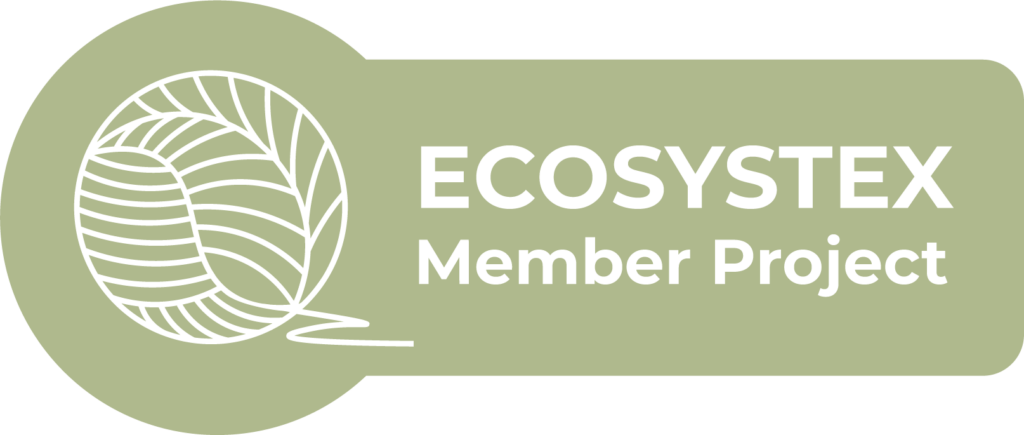Demonstrating circularity in practice
The THESEUS Hub for Circularity (H4C) demonstrates its innovations through five targeted pilot use cases, each focusing on a high-impact material flow with strong circular potential. Together, the pilots integrate advanced technologies, system-level governance approaches, and cross-sector collaboration to test and validate scalable circular solutions in real-world conditions.
The pilots address context-specific challenges in Attica, while being developed as replicable and scalable models. Through continuous feedback and exchange with replication hubs in Malmö (Sweden) and Mo (Norway), the THESEUS pilots generate transferable insights and operational models that can be adapted and scaled across European regions.
Pilot 1
Textiles
Objective
To redesign the textile value chain by integrating advanced sorting, recycling, and upcycling technologies that reduce waste and enhance circular reuse pathways.
Key Activities
- Sorting textile waste with multi-sensor and robotic technologies to improve purity and quality.
- Converting recovered textiles into secondary materials for reuse in manufacturing.
- Engaging local industries to validate new products derived from textile recycling.
Expected Impact
- Significant reduction in textile waste sent to landfills.
- Creation of sustainable supply chains for the fashion and manufacturing industries.
Pilot 2
Urban and Municipal Recycling Waste
Objective
To establish symbiotic flows for bio based materials and packaging, integrating waste streams into high-value circular products.
Key Activities
- Upcycling municipal solid waste (MSW) into biobased packaging materials.
- Testing innovative waste-to-product pathways to produce sustainable alternatives for packaging industries.
- Demonstrating the scalability of circular packaging solutions across Attica.
Expected Impact
- Enhanced resource efficiency and reduced reliance on virgin materials.
- Strengthened collaboration between waste management facilities and packaging manufacturers.
Pilot 3
Construction and Demolition Waste, Industrial Waste and Glass
Objective
To optimize the recycling and reuse of Construction and Demolition Waste (CDW) and glass waste, transforming it into new building materials.
Key Activities
- Sorting and processing CDW to recover high-value materials like concrete and metals.
- Developing and validating secondary construction products such as recycled aggregates and eco-bricks, using waste glass as binder.
- Collaborating with the construction industry to promote the adoption of recycled materials.
Expected Impact
- Reduced environmental impact of the construction sector.
- Increased adoption of circular practices in urban development.
Pilot 4
Energy
Objective
To harness and optimize energy flows through innovative technologies and symbiotic systems, enhancing energy efficiency and promoting renewable energy integration.
Key Activities
- Implementing solar thermal technologies, including advanced high-vacuum flat panels (HVFPs), for dual-mode district heating and cooling applications.
- Integrating waste heat recovery systems into industrial processes to enhance energy utilization.
- Developing business models such as Heat-as-a-Service (HaaS) and Cold-as-a-Service (CaaS) to scale up renewable energy adoption.
- Establishing symbiotic energy exchanges between urban and industrial systems to minimize energy waste and promote decarbonization.
Expected Impact
- Reduction in carbon emissions and reliance on fossil fuels with increased energy efficiency in industrial and urban applications.
- Creation of replicable models for renewable energy integration and symbiotic energy flows across regions.
Pilot 5
Water
Objective
To enhance the sustainable management and valorization of water resources by integrating innovative decentralized and centralized solutions, promoting circular water use, and mitigating water-related environmental challenges.
Key Activities
- Implementing decentralized water reuse systems, such as sewer mining, to repurpose reclaimed water for urban irrigation and industrial applications.
- Integrating Nature-Based Solutions (NBS) for rainwater and stormwater harvesting to enhance water availability and reduce urban flood risks.
- Demonstrating advanced treatment processes like fast pyrolysis and torrefaction to recover energy and value-added products from sewage sludge.
- Developing a Strategic Regional Master Plan for Circular Water Management in Attica, aligning with EU regulations and sustainability goals.
Expected Impact
- Increased availability of reclaimed water for agriculture, urban use, and industrial processes.
- Reduction in water-related environmental impacts, including flood risks and wastewater discharge.
- Creation of sustainable water management frameworks that align with regional and EU strategies.
Funded by the European Union under the Horizon Europe Innovation Actions programme (Grant Agreement No. 101178059), within the topic HORIZON-CL4-2024-TWIN-TRANSITION-01-38: Hubs for Circularity for Industrialised Urban Peripheral Areas (Processes4Planet Partnership). Views and opinions expressed are however those of the author(s) only and do not necessarily reflect those of the European Union or HADEA. Neither the European Union nor the granting authority can be held responsible for them.




